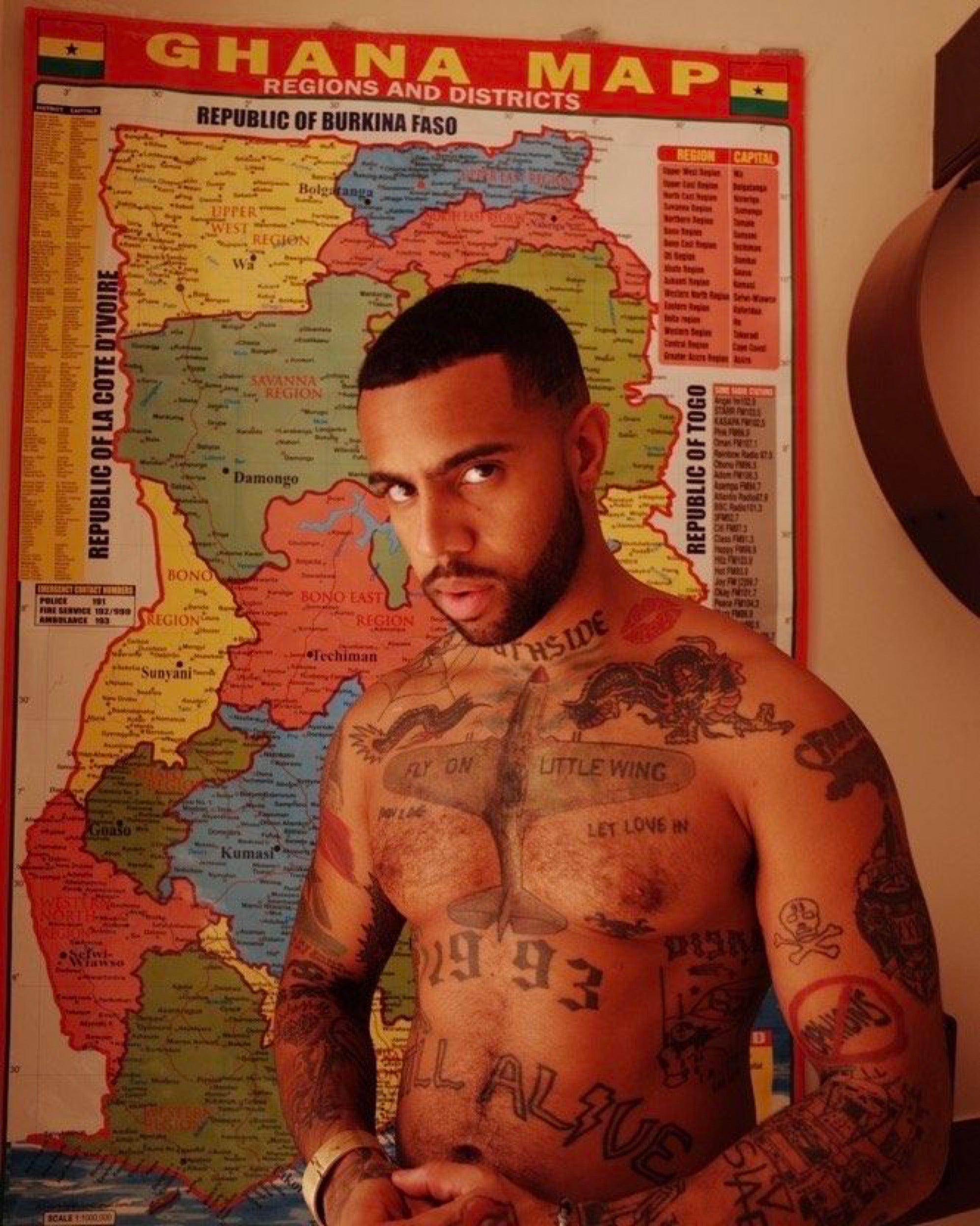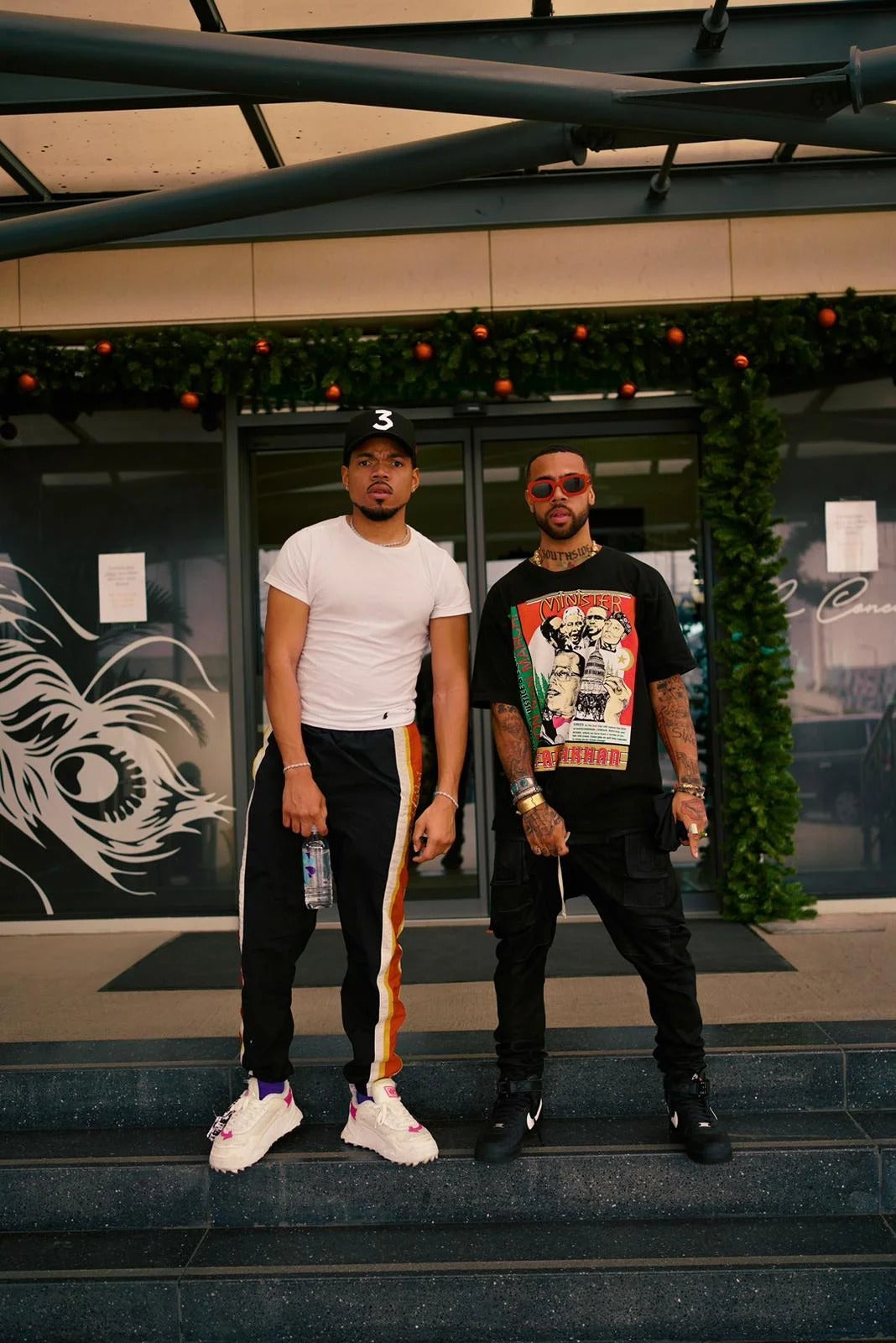
In 1922, Marcus Garvey’s Black Star Line was a throughline from the U.S. to the African continent, connecting members of the diaspora through the transport of goods, with the ultimate goal of transporting people back and forth one day as well – before being thwarted by federal agents.
100 years later, The Black Star Line Festival of Pan-African Art seeks to honor Garvey’s mission, linking the citizens of Africa to the descendants of Africa through music and creativity.
Ideated by Chicago-bred rappers Vic Mensa and Chance The Rapper, the festival is billed as a cultural experience rooted in intercontinental collaboration, featuring a week of cultural events, fine art exhibitions, panel discussions, and nightlife events leading up to a free concert event in Accra’s Black Star Square.
During a one-on-one discussion with ESSENCE, Mensa opened up about his personal ties to Ghana and the reason he decided to bring a large-scale festival to the African continent.

“I’ve had the immense privilege of growing up with a knowledge of my ancestry and my culture that has been stolen from most of the people I hold most dear in this life,” Mensa tells ESSENCE. “In recent years, I began spending much more time in Ghana. Although I started going home when I was 11, it wasn’t until, perhaps, 2020 that I really began going alone and cultivating my own relationships.”
On these solo adult trips, the rapper began to see his family’s homeland through new eyes. While dining in a local restaurant in East Legon, he ran into a native Ghanaian fan with a SAVEMONEY tattoo, a nod to the Chicago rap collective that both Chance and Mensa were members of in the mid-2010’s. As an internationally known artist and worldwide performer, a realization suddenly hit him.
“I started to realize that as a Black musician, so often we’re performing in Europe 10 times over before we ever perform in the continent of our origin. It’s like the rite of passage is a European tour where you perform in the B and C markets of Europe. Not just London, but Leeds and Liverpool; not just Berlin, but Dusseldorf; not just Amsterdam, but Oslo. You go to places you’ve never even heard of before you perform in Africa. You perform the entire continent of Australia. All these things happen within a year or two of you having a project that makes traction internationally.”
“I really started to think, ‘Man, there’s got to be a way to use this unique position that I have, being a conduit between Black America and Africa, to address this gap in communication between us. And there’s got to be some type of vessel that can be created where we could be bringing black artists to perform on the continent and get a cultural experience at the same time.'”
Presented with an opportunity to give one of his good friends and collaborators the very cultural experience he was ideating, a full plan began to materialize.
In January 2021, I was in Ghana, and pretty much out of the blue, Chance told me he wanted to come,” he says. “When he came, it was an opportunity for me to really step into that role that I’m speaking of; being a bridge between my people on either side of the ocean. While welcoming him to Ghana and giving him an experience of the country, I told him about this festival that I had been conceiving.”

Originally leaning toward calling the event “New Afrika” based on Fela Kuti’s New Afrika Shrine, Mensa believed that Chance’s enthusiasm for the continent, experience organizing large-scale festivals, and passion for performing for his people made him the perfect collaborator.
Noting that this festival caps off a season of music festivals and large scale cultural events that punctuate West Africa’s annual Detty December celebrations, Mensa saw an opportunity to flip the typical African Festival on its head.
“I’ve always looked at it as being almost an inverse of what they do. In many ways, it’s like Afrochella, Afro Nation, they’re broadcasting the music of Africa to the world,” he tells ESSENCE. “And I think in its genesis, this is bringing Black artists [from other parts] of the world to perform for the people of Africa.”
Black Star Line Festival currently boasts a lineup consisting of American acts like Erykah Badu, T-Pain, Tobe Nwigwe and Jeremih, among others. To most effectively bridge that gap and present stars of the Diaspora to the people of The Continent, Mensa wanted to be sure that this festival was free to all and open to the public.
“In its inception phase, many things that are going on in Ghana right now based off of the influx of tourism are quite out of reach for the average Ghanaian,” he observes. “I think that in making it a free festival, it’s just changing the landscape a little bit and creating our own narrative.”
In addition to bridging cultural and collaborative gaps, the festival serves to fund clean water facilities in Ghana’s communities of need.

“[It’s] is something that my father and I already started doing in our community in the eastern region in Koforidua in what’s called the Asacari Zongo. Zongos are West African settlements, commonly known as slums. People would be really astounded to learn the difficulties of obtaining what many of us take for granted as a basic human right: access to clean water.”
With a new festival just weeks away, and a new album on the horizon in that he describes as “a story of redemption” with Hip-Hop and West African High Life influences, 2023 is shaping up to be a huge year for Mensa, both personally and with his grander mission at play.
“The way I see it, it’s just a seismic shift in the cultural consciousness. Art, music, and conversation are really the vessel for that larger idea of unity.”